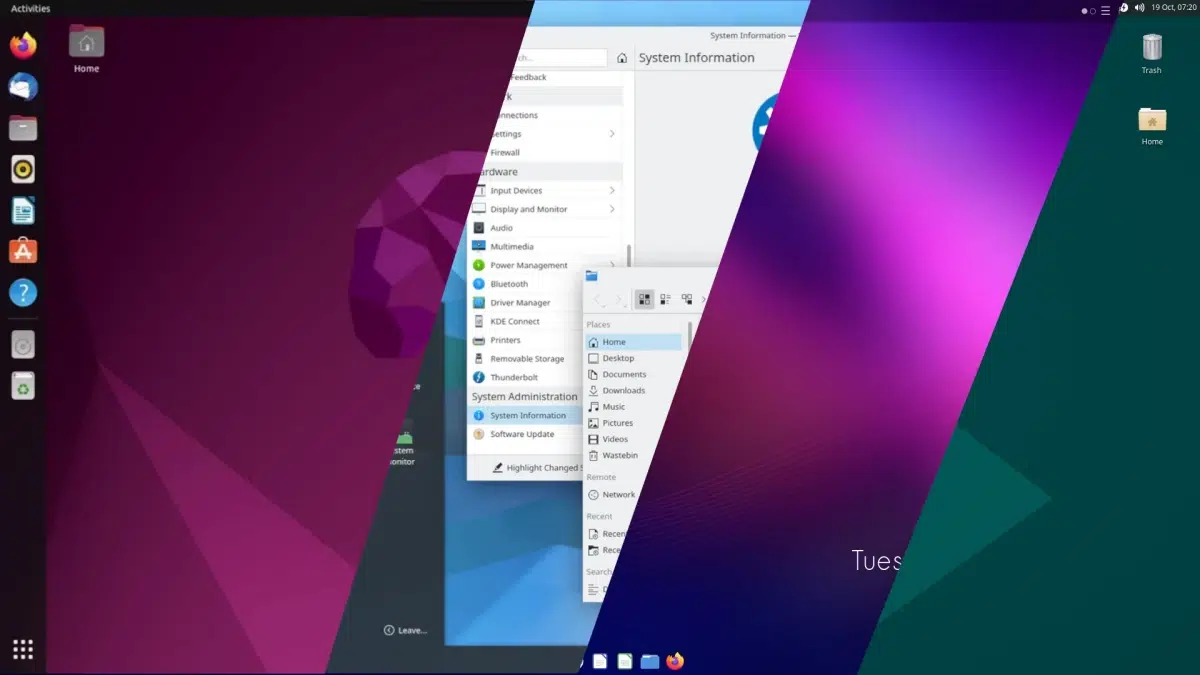Here are three contributing factors to the disparity:
- Mac OS has been around since the 1980s (depending on when you qualify 'System', the first OS, vs. Mac OS). It has had a multi-million dollar marketing budget virtually every year since then (as part of Apple's hardware strategy).
- Mac OS has always been the product of a company. The company benefits from: professional designers, professional software engineers, professional product managers, and marketing resources. More on these later.
- The OS has never had significant market share as a % of the personal computer whole. But it enjoyed loyal users in the PC boom and grew from 2% to around 7% which is where it sits today. Apple's high margin, hardware led strategy means that it's a profitable endeavour (compare with OEM strategies which are tough to get right).
Professional designers, professional software engineers, professional product managers, and marketing resources are by far the most important reason why Mac OS has been better adopted than GNU/Linux. The only two things which count in software engineering are roadmap and execution. And if you can get one of those right you'll basically be fine.
Internet Explorer is a good example of both of those things going wrong: the roadmap was bad (MS making its own path and ignoring web standards) and the execution was terrible (Trident rendering engine). With Windows, the roadmap was great and the execution quality has been variable.
At Apple, the OS roadmap has always been decided by a few key senior engineers, and if there was ever any doubt about what was important, for long periods (but not all) of the company's history, there was a single voice which counted (Steve).
In contrast, the open source community can be a difficult place to get clarity of vision and quick, effective decision making. Because people give their time freely (in most instances), projects tend to organise around fairly democratic processes. Look at the web standards movement, which has terrible, long-winded processes and consultations with vendors.
"The mailing lists are a joke. The working groups are a bit like small town council committees. Meetings about meetings. Emails about emails."
Much of OSS is like this. And it means roadmaps are of variable quality. Things have rapidly improved in the last ten years, but it's still not as good as it is at Apple. Why? Because when Apple sells 4 million Macs per quarter, which funds Mac OS (which is free if you have Apple hardware), it makes money. Let's guesstimate a 30% margin and an average retail price of $1500 for a Mac. So that's $6bn of Mac revenue of which $1.8bn is profit. So Apple is, after costs, generating about $7.2bn per year of profit from its hardware/software.
Apple has a team of maybe 1,000 internal recruiters (worldwide) who are constantly calling, emailing, and otherwise building relationships with the best talent around the world. Come and help build Mac OS. We'll pay you whatever you want, you get Apple stock, and you work for one of the coolest and most successful companies in the world. It hoovers up the best and brightest minds from top schools; kids who grew up thinking the iPod and iPhone were incredible devices.
The open source community cannot compete with that. There are a few committed geniuses who you can bet Apple and others would love to hire, but who staunchly reject the corporate dollar. And sometimes people go from Google/Apple/MS to working on open source projects. But, in the main, the bulk of top talent in this world goes to Google, Apple, Facebook.
And product mangers are vital. Apple has a release cycle which it sticks to. People at Apple work really hard. Nobody questions it. It's not a hippy commune like Google, but you get pretty much whatever you need and you're expected to ship ship ship. A core reason for that is great product managers. They are some of the most accomplished managers in the world. They know when to push and pull. How much carrot, how much stick. And they make sure the trains run on time, whilst most open source projects are still debating over email.
Companies like Canonical are a bit different. But in 2009 Canonical did $30m of revenue, whilst Apple did $36.5 billion. In 2009 Apple was the size of 1216.6 Canonicals. It isn't a fair fight to begin with.
